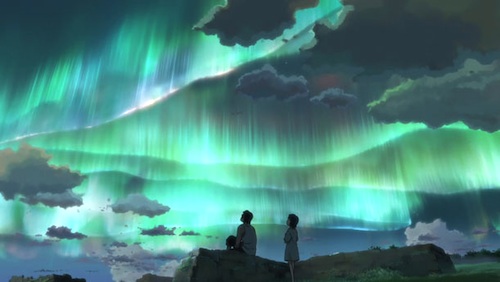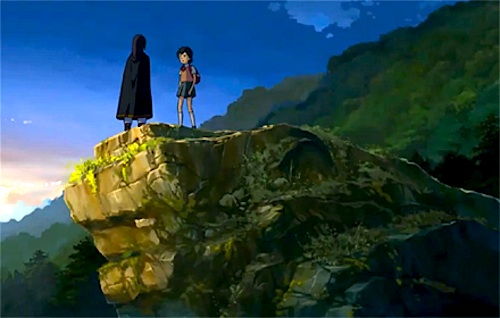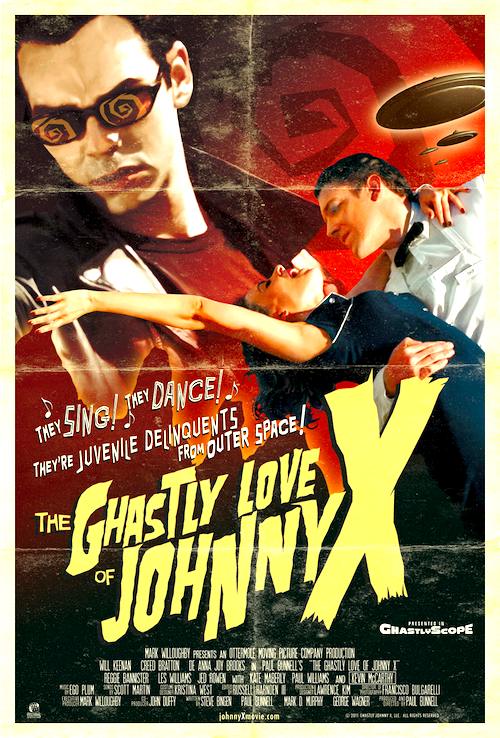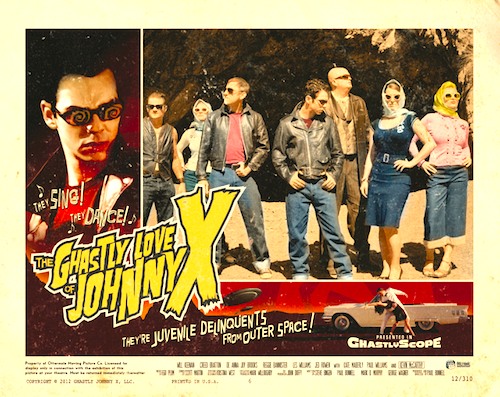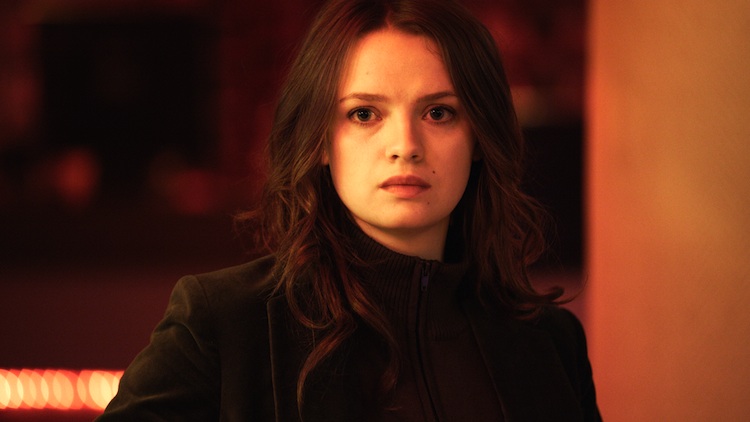
By Joe Bendel. Simon Weiss knows a side of Paris few tourists see. Well, some do. In fact, the clubs the vice captain polices might be the ultimate purpose of many visits. Whether high-end or low-rent, there is definitely something brewing in the city’s nightspots during the fateful night chronicled in Philippe Lefebvre’s wickedly stylish Paris By Night (trailer here), which screens tonight as part of the 2012 Rendezvous with French Cinema in New York.
The ambiguously corrupt Weiss knows someone is trying to jam him up with internal affairs. He intends to find out whom as he makes his nocturnal rounds. As he explains to Officer Laurence Deray, he must engage in a different sort of policing. She will be his driver tonight. It is considered a difficult assignment no cop wants to do twice. She will soon learn why. Indeed, it will be an eye-opening night for them both.
 Granted, much of the film consists of Zem’s Weiss strutting through the red light district like a shark, smacking around punks as if they are little girls. Of course, that is also why it so seductively entertaining. Yet Lefebvre steadily raises the stakes, slyly revealing details of the frame-up job Weiss is trying to slip out of.
Granted, much of the film consists of Zem’s Weiss strutting through the red light district like a shark, smacking around punks as if they are little girls. Of course, that is also why it so seductively entertaining. Yet Lefebvre steadily raises the stakes, slyly revealing details of the frame-up job Weiss is trying to slip out of.
Frankly, Weiss is the sort of role Roschdy Zem was born to play. Easily the baddest hard-nose making films today, Zem already has mucho street cred for his manly turns in films like Point Blank, 36th Precinct, and Outside the Law, but he kicks it up to a whole new level in PBN. This is not Eastwood coolness, this is McQueen coolness. While he could carry the film on his own, Zem still gets a head-turning assist from Sara Forestier as the somewhat incredulous but impressively poised Deray. Together they are quite a dynamic pair.
True to its title, PBN gives viewers a memorable tour of after-hours Paris, whilst unfolding its surprisingly cerebral crime story. Cinematographer Jérôme Alméras vividly captures the glitz and grime, conveying the late night vibe in spades.
While the French-Moroccan Zem is already a major star in France, he is overdue for widespread acclaim in America. PBN is the sort of vehicle that could get the job done. It is a perfect showcase for his stone cold flintiness. Slick, taut, and brooding, PBN is one of the clear highlights of this year’s French Rendezvous. Highly recommended, it screens again tonight (3/6) at the IFC Center.
Posted on March 6th, 2012 at 4:30pm.
